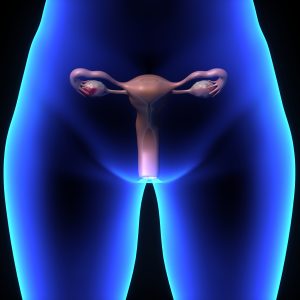 A retrospective study concluded recently that women with endometriosis are at lower risk of developing chronic kidney disease (CKD). But the protective association disappears when the menopausal status of women is taken into account, because post-menopausal women with endometriosis are as likely to develop CKD as post-menopausal women without endometriosis.
A retrospective study concluded recently that women with endometriosis are at lower risk of developing chronic kidney disease (CKD). But the protective association disappears when the menopausal status of women is taken into account, because post-menopausal women with endometriosis are as likely to develop CKD as post-menopausal women without endometriosis.
Using the National Health Insurance Research Database of Taiwan, data collected from 55,946 women between 2000 and 2010 was analyzed. The findings of the large-scale, study were published in the International Journal of Molecular Sciences in an article titled “Endometriosis Might Be Inversely Associated with Developing Chronic Kidney Disease: A Population-Based Cohort Study in Taiwan.”
CKD is characterized by decreased kidney function and is associated with high medical costs and morbidity rates. Gender is typically considered an independent risk factor of the disease, with prevalence increased in men. Cardiovascular disease and diabetes mellitus are comorbidities (diseases that often exist) with CKD.
Previous studies suggested that estrogen levels may impact renal function, however the relationship remains controversial. The association between endometriosis, an estrogen-dependent inflammatory disease, and CKD has not been examined. Given the possible influence of estrogen on both of the diseases, and the overlapping comorbidities, the current study aimed to determine whether an association exists between endometriosis and CKD.
In women without endometriosis, the prevalence of CKD rate was 7.01, while the incidence rate of CKD in women with endometriosis was 4.64. The median time to diagnosis was also assessed: women with endometriosis displayed a longer median time to diagnosis (7.45 years) as compared to women without endometriosis (5.86 years).
Both the reduced incidence rate and increased time to diagnosis suggest an inverse association between endometriosis and CKD in women. But when researchers adjusted for menopausal status there was no longer an endometriosis-dependent difference between the incidence rate of CKD in women.
When age-related associations were examined, the researchers found a positive correlation between increased age and incidence of CKD. This suggests that, according to researchers, that regardless of endometriosis, age is the most important risk factor in CKD development among women. Using five age groups (less than 40; 40-49; 50-59; 60-69; and greater than 70), it was determined that women with endometriosis ages 40-49 possessed the lowest risk for development of CKD. Again, the reduced risk was dependent on menopausal status; and the protective age-dependent association disappeared post-menopause.

